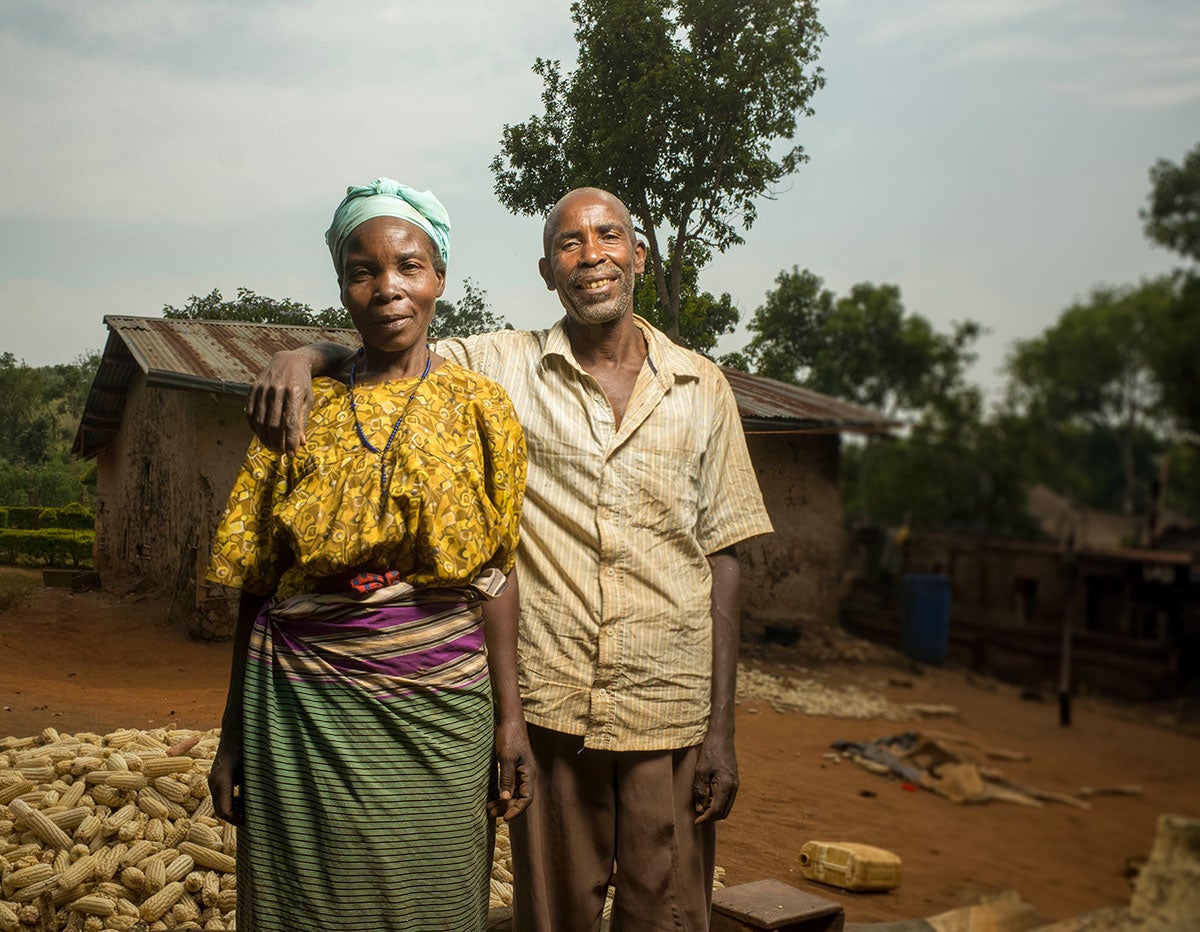In 1946, CARE launched its first humanitarian effort: distributing excess food rations to war-torn communities in Europe. Much has changed since those first CARE Packages were delivered, but sadly, conflict-driven hunger remains prevalent. Violence in Sudan, Ethiopia, Gaza, and Haiti, among others, has pushed entire populations to the brink of starvation, while the war in Ukraine continues to displace millions and disrupt global supply chains – a ripple effect impacting vulnerable communities thousands of miles from the fighting.
New threats to food security have also emerged in the form of climate change, poor agricultural practices, and policies and systems that prioritize profit over people. Extreme weather events such as drought and flooding – sometimes experienced back-to-back – can force communities to depend on external aid for months if not years. Modern agriculture, meanwhile, is depleting the earth of vital natural resources needed to sustain future food production.
Woven throughout these challenges is vast income and gender inequality. Evidence from global sources, as well as CARE’s analysis of the underlying causes of poverty, overwhelmingly demonstrates that gender discrimination – or the denial of women’s basic human rights – is one of the major causes of poverty and food and nutrition insecurity. Until everyone can participate in – and benefit from – a country’s growth, progress will stall.



